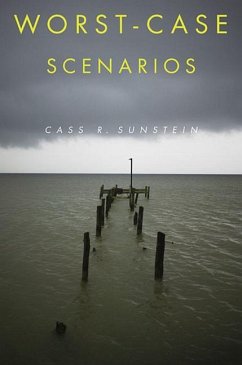Nuclear bombs in suitcases, anthrax bacilli in ventilators, tsunamis, meteors hitting the earth: nightmares that were once the subjects of Hollywood movies are now frighteningly real possibilities. But how real are they--how should we assess their risks, and, if need be, take costly and risky measures to avoid them? How can we steer a path between being paralyzed by fear and and overreacting recklessly? Cass Sunstein assesses these scenarios and what legal and policy measures might be taken to counter them in this calm, carefully reasoned, and sensible primer. He first explores people's responses to worst-case scenarios and their susceptibility to two opposite behaviors: overreaction and neglect. These behaviors affect persons and governments alike. He then examines how private individuals and public officials might best respond to low-probability risks of disaster. Finally, he offers an understanding of the role of cost-benefit analysis, especially when we are facing harms that will not come to fruition in the near future. Throughout he uses climate change as a defining case, because of its significance and because it clearly illustrates underlying principles. But he also discusses terrorism, depletion of the ozone layer, genetic modification of food, hurricanes, and the avian flu. At the end, Sunstein concludes, we can drive ourselves crazy obsessing about these scenarios. On the other hand, if we spend some time thinking about them, keeping in mind a few simple principles and not acting precipitately, we can lead longer, safer, and happier lives. Cass R. Sunstein is Karl Llewellyn Professor of Law and Jurisprudence, The University of Chicago.








